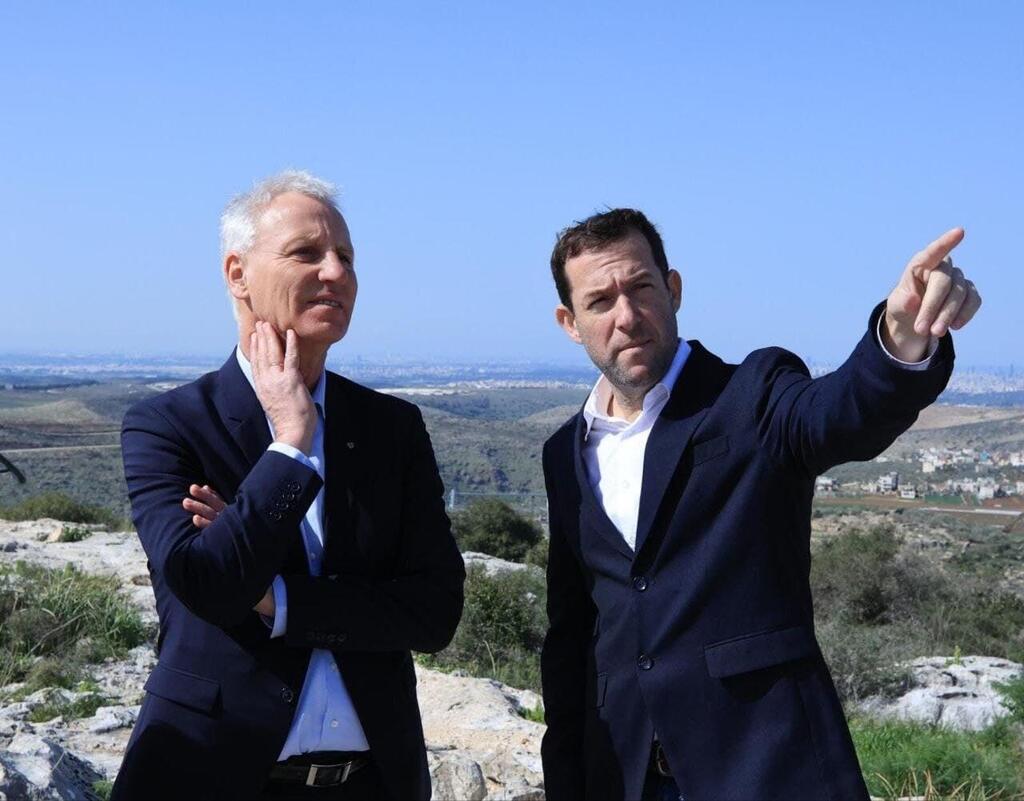Miklós Soltész, the religious affairs minister of European Union member state Hungary, has recently visited Israel and received a guided tour of West Bank settlements, becoming the first minister from the continental bloc to do so.
Focusing on the Samaria region, the biblical name of the territory's northern region, Soltész began his tour in the settlement of Peduel east of Petah Tikva in central Israel proper, accompanied by the head of the local regional council Yossi Dagan.
Shomron Regional Council head Yossi Dagan gives Hungarian Religious Affairs Minister Miklós Soltész a tour of the West Bank’s Samaria region
"Those who want a strong Israel need to support our settlement in this area," Dagan said. "We are delighted to strengthen relations between Samaria and Hungary."
Soltész of the Christian Democratic People's Party is one of the premier politicians in Hungary and has been serving as secretary of state for churches, minorities and civil affairs under Prime Minister Viktor Orbán for the past decade. He also previously served as secretary of state for social and family affairs.
From his vantage point in Peduel, Soltész was able to get a sight of most of Israel — from Haifa in the country's north to the Ashdod port in its south, with Tel Aviv and Ben Gurion Airport in between.
When an oncoming plane flew directly over them, headed to land at Ben Gurion, Soltész was struck by Israel's diminutive size.
From there, the tour continued to Barkan Industrial Park where he met both Jewish and Arab workers. Using the industrial zone as an example of coexistence between Arabs and Jews in the West Bank, Dagan told Soltész that the EU's policy regarding goods from Israeli settlements is making use of European taxpayer money to supposedly penalize Israel in the name of the very same coexistence it champions.
The two then visited Gatot Barkan, an archeological site adjacent to the industrial zone, where Dagan opened a large Bible and read Soltész a passage.
The Hungarian minister was visibly moved by the gesture.
"Of course the Israeli people have the right to live free of terror, and I'm given strength from meeting residents and workers in the area. If there is no Samaria, there will be no Tel Aviv," he said.
"For us Hungarians, Jews are our big brothers, and though I'm older than Yossi, it's like his my big brother."
Dagan added: "This is the land of the Bible. The roots of Judaism start here. Most Israel-bound planes fly over Samaria. I want to thank the minister for strengthening our ties. We are happy you're here."
Rabbi Slomó Köves of Chabad-Lubavitch affiliate in Hungary EMIH, who helped facilitate the trip, said he hopes the visit was the first step in further deepening ties between Israel and Budapest.
"Since one of Israel's most prominent partners is Hungary, it was of great importance to me to plan this visit. The two nations have shared values of nationality and religion. The Boycott, Divestment and Sanctions movement, which is a new kind of European antisemitism, is pretty much non-existent in Hungary," he said.
"It meant a lot to me to bring the minister to Judea and Samaria, where the roots of the Jewish experience and history lie. I expect there will be more cooperative endeavors between us."




